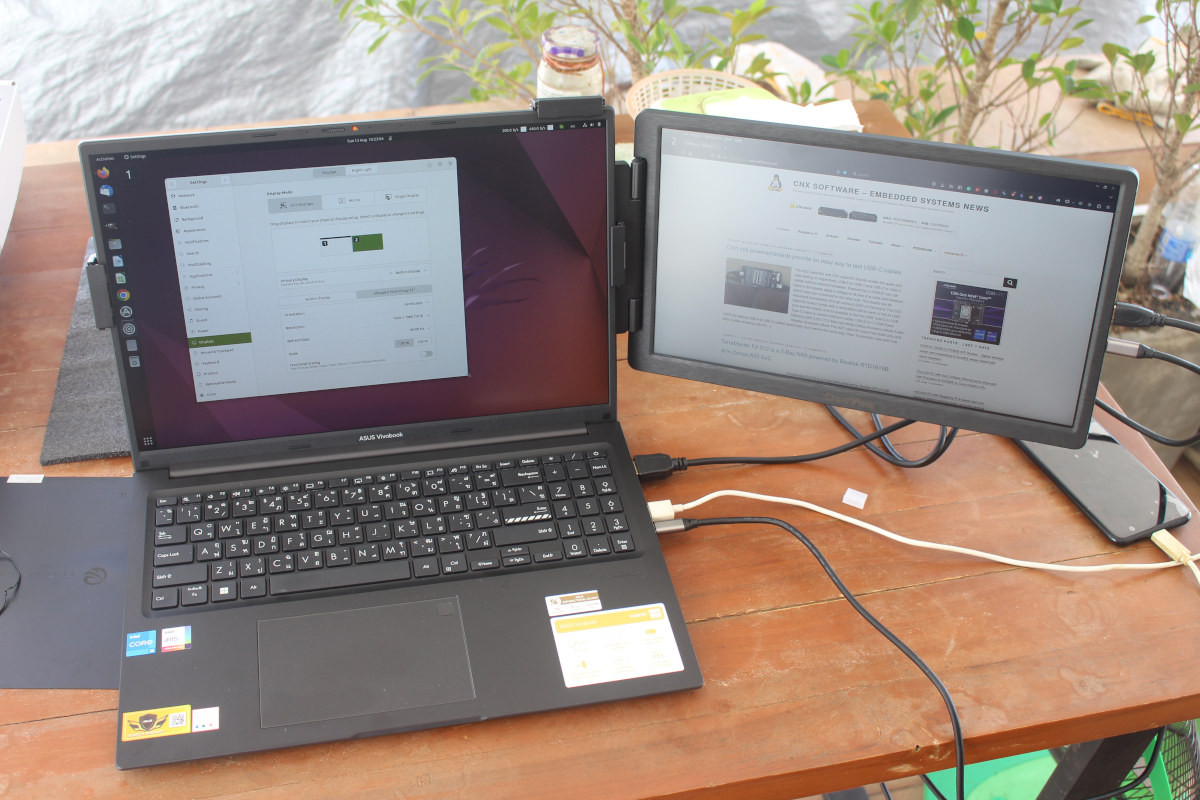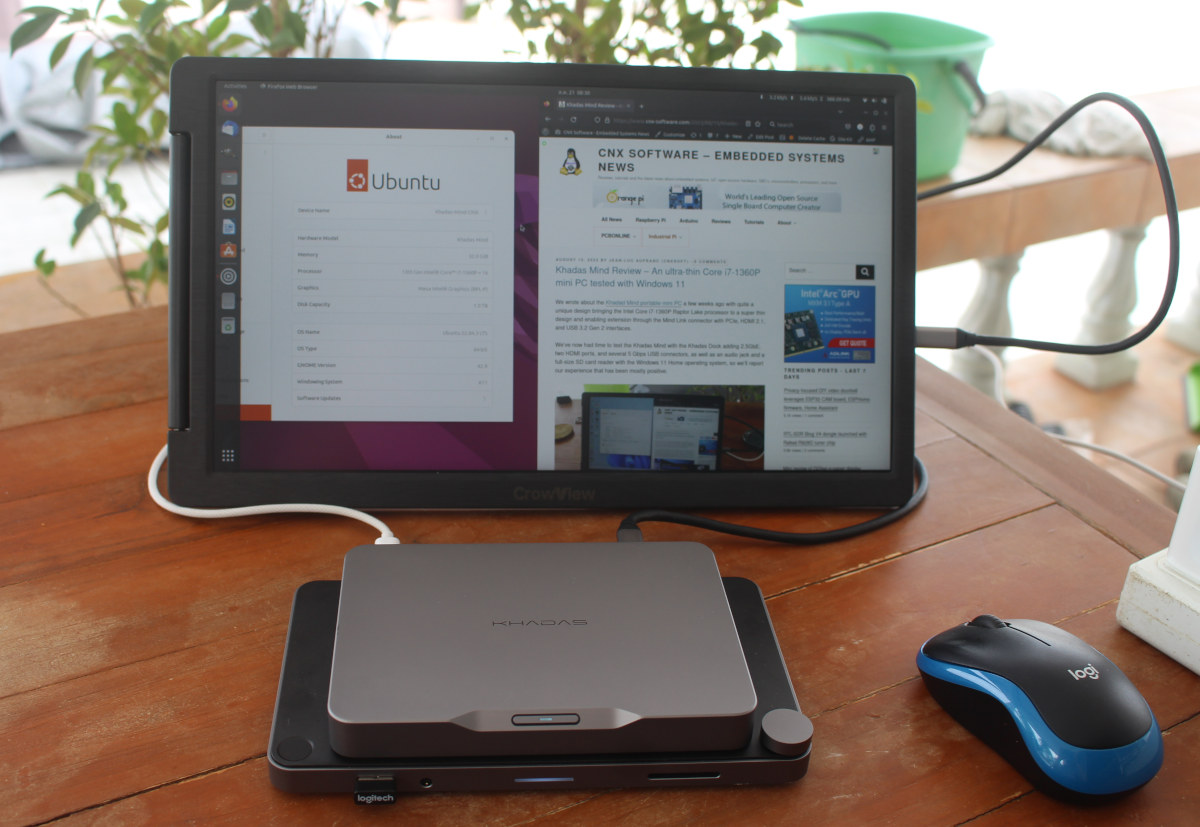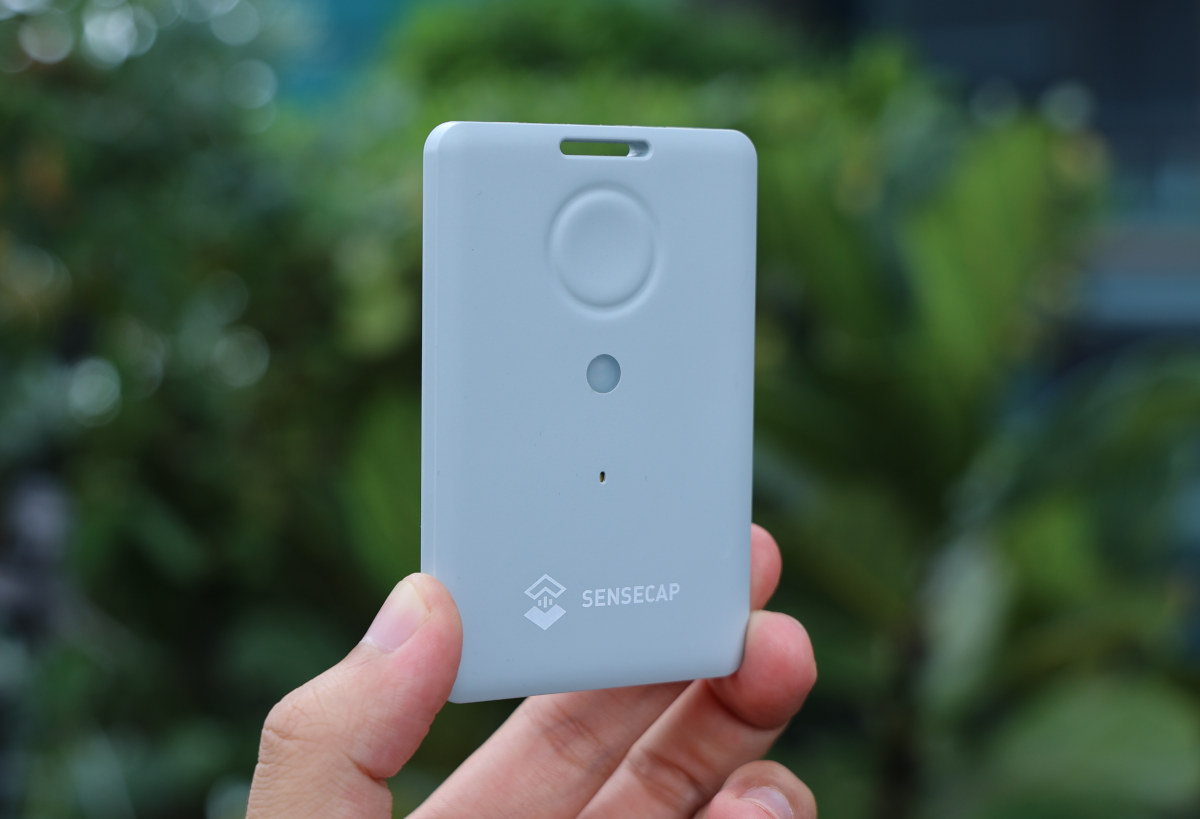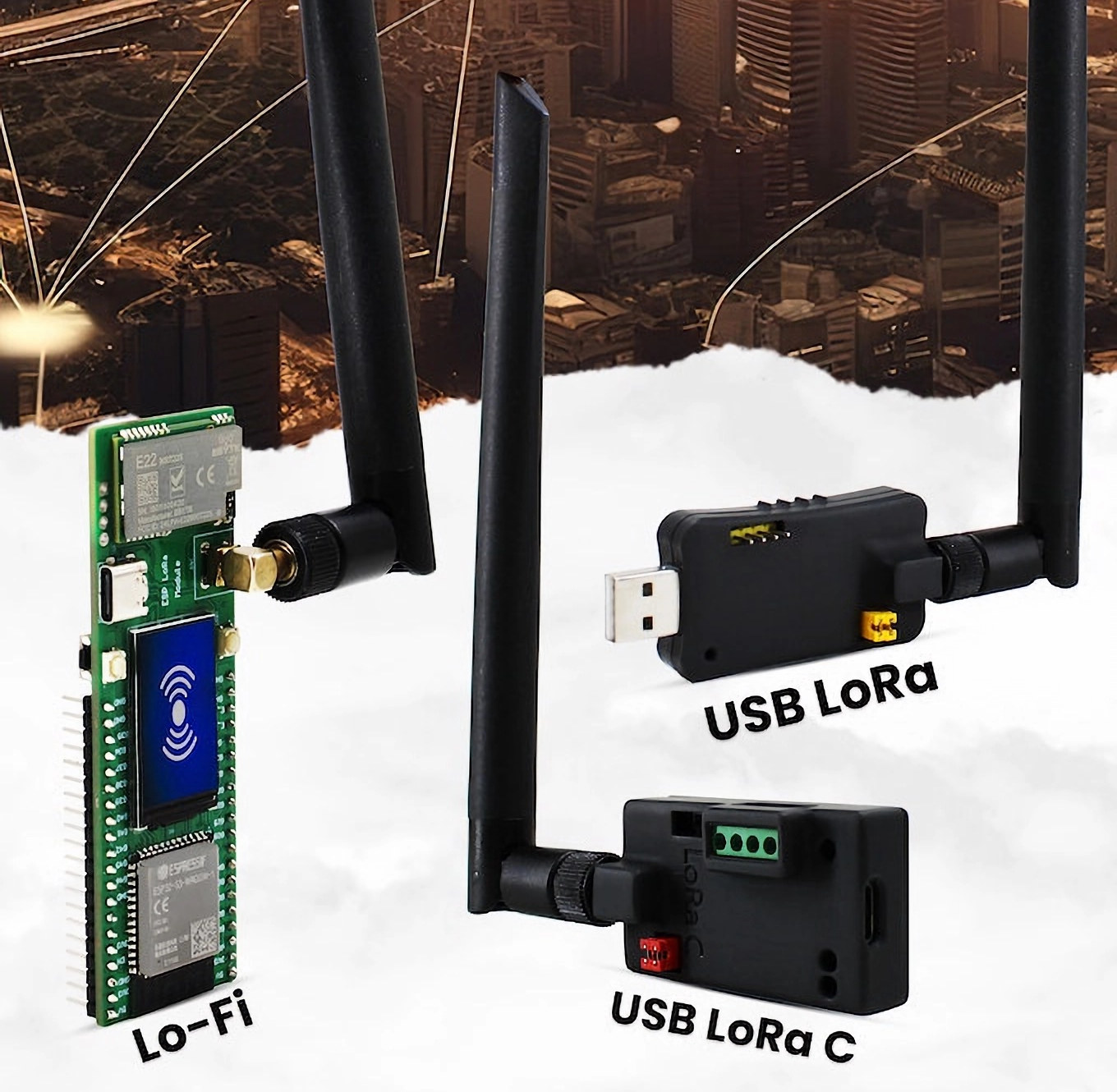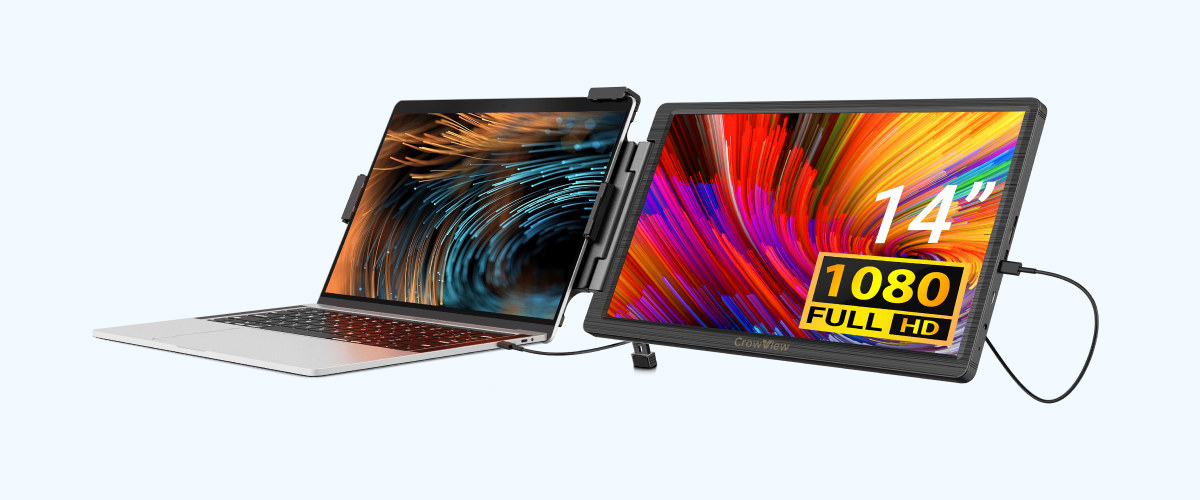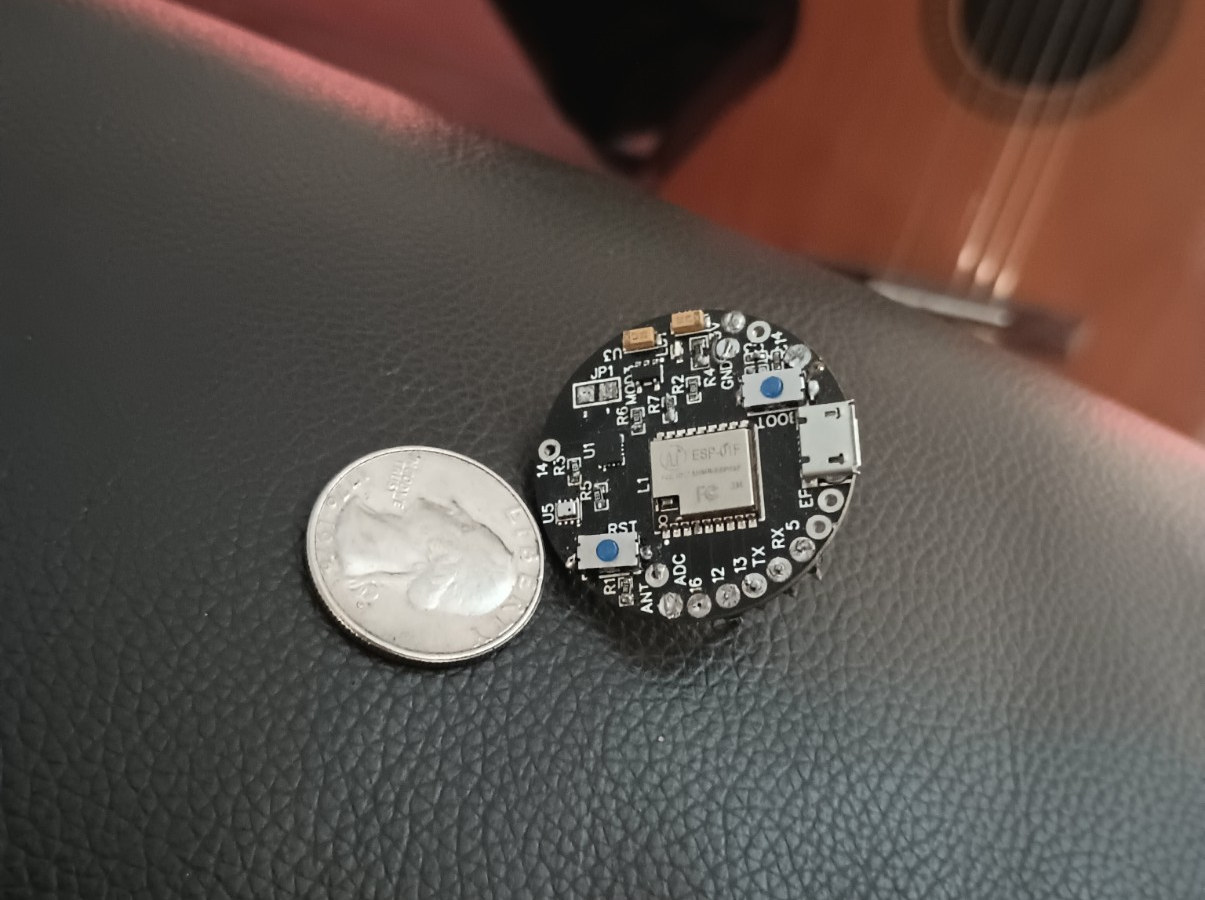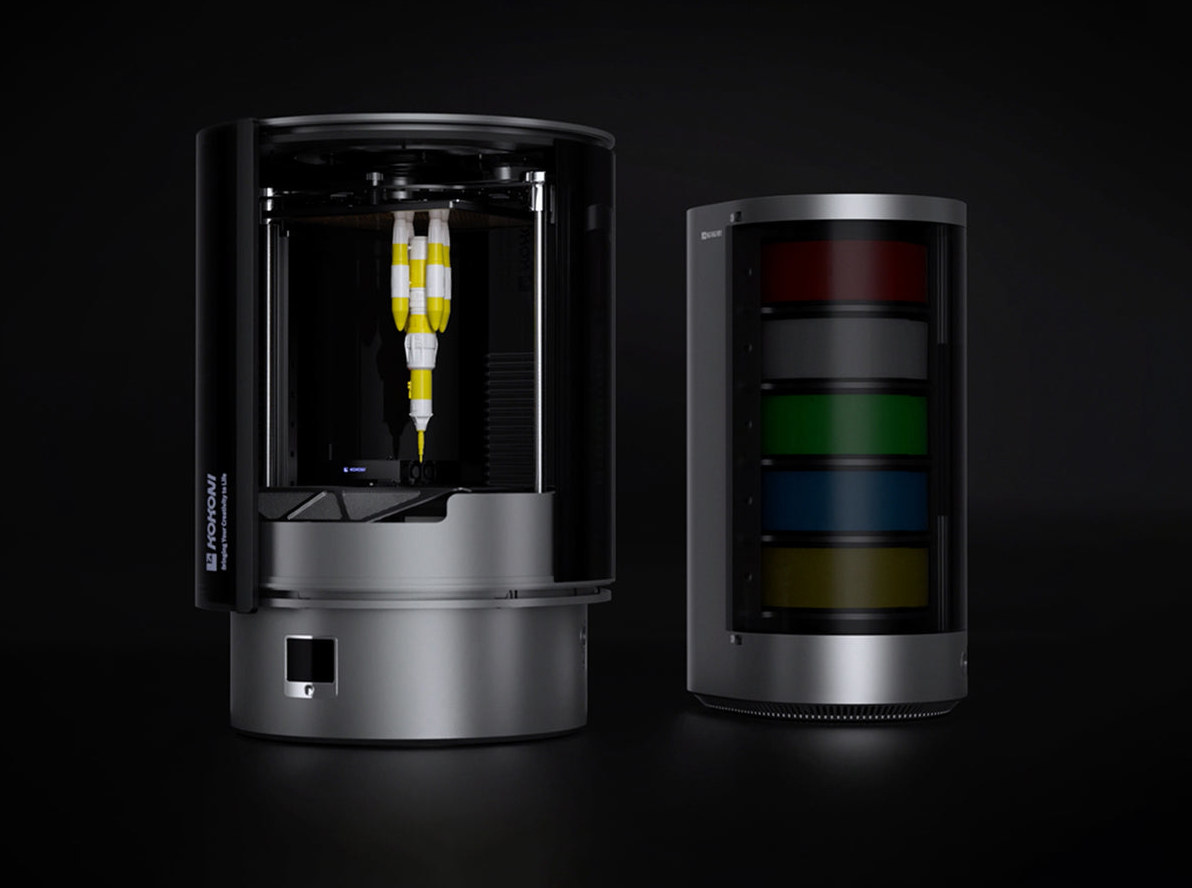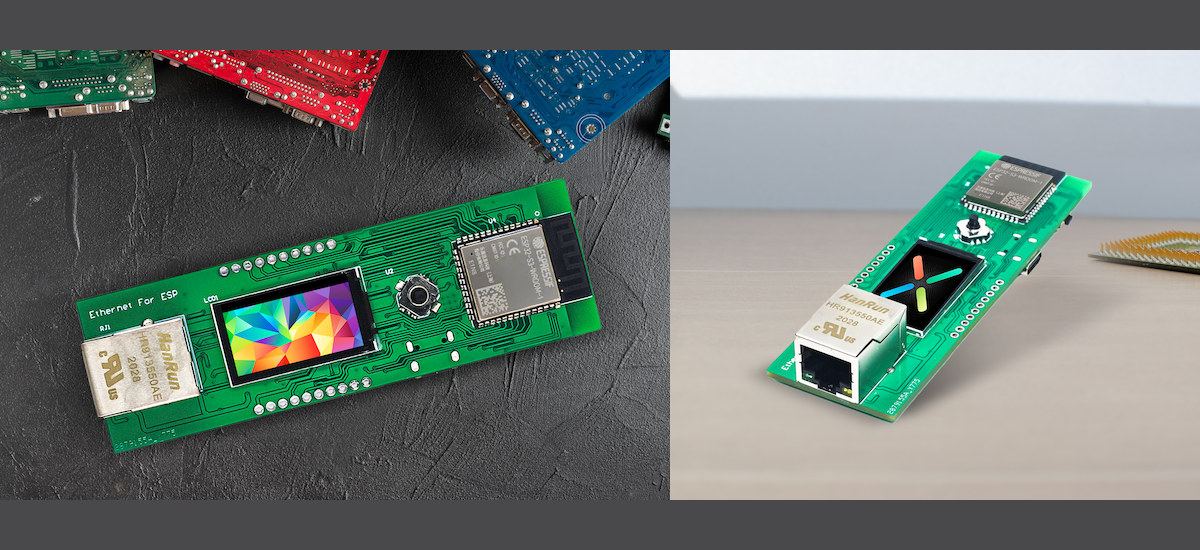I received an early sample of the CrowView 14-inch laptop monitor for review a few weeks ago, and regular readers may have seen me already use it in some mini PC reviews, but I’ve yet to review the monitor itself, so I’ll report my experience using both laptops and mini PCs running Windows 11 and Ubuntu 22.04. CrowView laptop monitor unboxing The display ships in a retail package highlighting the main features of the display such as its Full HD resolution, compatibility with 13 to 16.5-inch laptop displays, 160° viewing angle, and its mechanical clamping mechanism. The CrowView display ships with a 12V/2A power supply, USB-A to USB-C and USB-C to USB-C cables, an HDMI to mini HDMI cable, a velcro tie, some stickers, and a user manual in English. The clamping mechanism can be found on the back of the display. There are also four buttons on the bottom […]
Khadas Mind Premium review – Part 3: Ubuntu 22.04 tested on an Intel Core i7-1360P mini PC
Khadas Mind Premium is an ultra-thin mini PC powered by an Intel Core i7-1360P Raptor Lake processor and supports various docks through the Khadas Link connector. We reviewed the mini PC with the Mind Dock in Windows 11 a few weeks ago, and we’ve now had time to install Ubuntu 22.04 to check out the mini PC with Linux. Installing Ubuntu 22.04 on Khadad Mind Premium We decided to install Ubuntu 22.04 alongside Windows 11, so we shrank the Windows partition by about half before inserting a Ubuntu 22.04.3 USB drive to install the Linux distribution. This went smoothly, and in no time we could run Ubuntu 22.04 on Khadas Mind Premium with just two cables, one for power, and the other for the display (both video and power) as we used a wireless mouse and keyboard for user input. Ubuntu 22.04.3 system information The system information in Ubuntu 22.04.3 […]
SenseCAP T1000 – A credit card-sized LoRaWAN GPS tracker based on Semtech LR1110 (Crowdfunding)
SenseCAP T1000 is an ultra-thin credit-card-sized GPS tracker with Semtech LR1110 wireless chip with LoRaWAN, WiFi (scanning), and GNSS connectivity, plus two built-in sensors to monitor temperature, light intensity, and motion. We’ve covered several LTE IoT and LoRaWAN GPS trackers in the past and even tested the RAK811 LoRa GPS Tracker board with our own gateway, but the SenseCAP T1000 is particularly attractive due to its slim design. It works both indoors and outdoors with IP65 waterproof protection, looks quite easy to set up with its button and LED, and also integrates an SOS feature that can be triggered with a long press. SenseCAP T1000 specifications: Wireless Semtech LoRa Edge LR1110 Asset Management Platform LoRa/(G)FSK Half-Duplex RF transceiver working in the 150 – 960MHz; compatible with LoRaWAN 1.0.4 standard GNSS (GPS/ BeiDou) low-power scanning 802.11b/g/n Wi-Fi ultra-low-power passive scanning Unnamed Bluetooth 5.1 LE chip for initial configuration and indoor positioning […]
Lo-Fi ESP32-S3 board features LoRa module for low-power long-range connectivity (Crowdfunding)
SB Components’ Lo-Fi is an ESP32-S3 board equipped with a LoRa module for low-power long-range connectivity, and the company has also introduced two LoRa USB dongles with either Type-A or Type-C connectors. Lo-Fi specifications: Wireless module ESP32-S3-WROOM-1: SoC – ESP32-S3 dual-core LX7 microprocessor @ up to 240 MHz with Vector extension for machine learning, WiFi 4 & Bluetooth 5 LE/Mesh Memory – 8MB OSPI PSRAM Storage – 8MB QSPI flash PCB antenna Dimensions – 25.5 x 18.0 x 3.1 mm Unnamed LoRa module Tx power of up to 22dBm (160mW) adjustable by software Rx sensitivity of up to -138 dBm ISM bands – 433MHz, 868MHz, and 915MHz Range – Up to 5km range Data rates – 300 bps to 62.5 kbps RoHS compliance External LoRa antenna Display – 1.14-inch TFT display with 240×135 resolution USB – 1x USB Type-C port for programming and power Expansion – 2x 20-pin GPIO headers […]
CrowView adds a 14-inch portable monitor to your laptop for $115 and up (Crowdfunding)
Elecrow CrowView is a lightweight 14-inch portable monitor designed to be attached to your laptop adding a secondary monitor to it through a clamping structure that works with laptops having a 13-inch to 16.5-inch display. We’ve seen this type of laptop monitor extension for years, and you’ll find various models on Amazon. But the Elecrow is now offering the CrowView at a significantly lower price than competitors especially if you pledge $114.90 for the super early bird reward on Kickstarter. The regular price ($179) can still be interesting as in this price range you’d usually get an 11-inch or 12-inch display. CrowView specifications: 14-inch IPS display with 1920×1080 resolution, 60 Hz refresh rate, 400 nit brightness Compatible with 13-inch to 16.5-inch laptops with 4 to 8mm thick displays thanks to a telescopic snap 230° hinge enabling face-to-face mode. Ports Mini HDMI port for video input 2x full-featured USB Type-C port […]
ButtonBoard is a 3cm round WiFi IoT board with BME280 and IMU sensors (Crowdfunding)
ButtonBoard is a tiny round-shaped board based on the ESP-01F WiFi IoT module (ESP8285), equipped with a BME280 air pressure, humidity, and temperature sensor, an IMU sensor, and designed for wearables electronics projects. ButtonBoard specifications: Wireless module – ESP-01F module with ESP8285 Tensilica L106 microcontroller @ 80/160 MHz with 2.4GHz WiFi connectivity, PCB antenna; package: 11 x 10 mm USB – Micro USB port Sensors Bosch Sensortec BME280 pressure, temperature, and humidity sensor, and altimeter. IMU sensor Expansion – Through holes for up to 10x GPIOs, I2C, SPI, USART Misc – Reset button Power Supply – 5V via micro USB port; onboard power management Dimensions – About 3cm diameter The ButtonBoard can be programmed with the Arduino IDE via USB or WiFi, MicroPython, Lua, and Scratch, and they also mention support for ChatGPT through the current API, but I could not find any code samples at this time. They do […]
KOKONI SOTA 3D printer handles 600mm/s prints, 7-color printing (Crowdfunding)
KOKONI SOTA 3D printer with an inverted design (the printing head is under the hotbed) that supports printing speeds of up to 600mm/s, as well as 7-color printing through a filament tower adding support for 5 extra filament rolls. The upside-down design was made to move motors and rails to the bottom base of the printer to lower the center of gravity and help improve stability, reduce the vibration to virtually nothing, and enable the faster printing speed. KOKONI also says the SOTA 3D printer offers 0.1mm accuracy thanks to AI radar detection and error compensation and operates relatively silently at 30dB one meter from the 3D printer. KOKONI SOTA specifications: Printing size – 200 x 200 x 200 mm XY axis – Linear rail Z-axis SOTA Lite – Lead screw SOTA – High-precision ball screws Drive motor SOTA Lite – high-speed stepper motor SOTA – Closed-loop motor with magnetic […]
ESPi Ethernet & info display board comes with ESP32-S3 module or Raspberry Pi Pico W board (Crowdfunding)
SB Components’ ESPi is a WiFi-enabled Ethernet board with a 1.14-inch information color display either coming with an ESP32-S3 WiFi and Bluetooth module or designed as a carrier board for the Raspberry Pi Pico W board. I have no idea who needs this, but the ESPi board looks cute and can be used as a 10/100Mbps Ethernet to WiFi (or BLE) gateway with a small TFT display, and there’s also a small joystick on the board to control a potential menu or user interface rendered in the display. ESPi board specifications: Module/Board (one or the other) ESP32-S3-WROOM-1 module with ESP32-S3 dual-core LX7 microprocessor @ up to 240 MHz with Vector extension for machine learning, up to 16MB flash, up to 8MB PSRAM, WiFi 4, and Bluetooth 5 with LE/Mesh Raspberry Pi Pico W board with Raspberry Pi RP2040 dual-core Cortex-M0+ microcontroller @ 133 Mhz with 264KB RAM, 8MB SPI flash, […]


